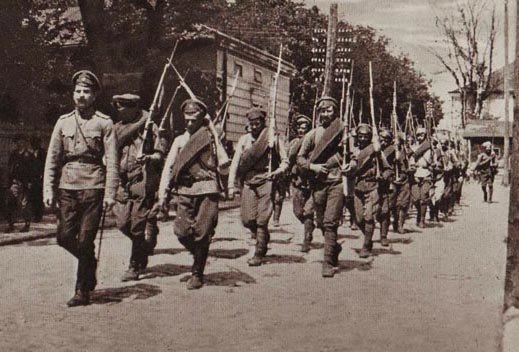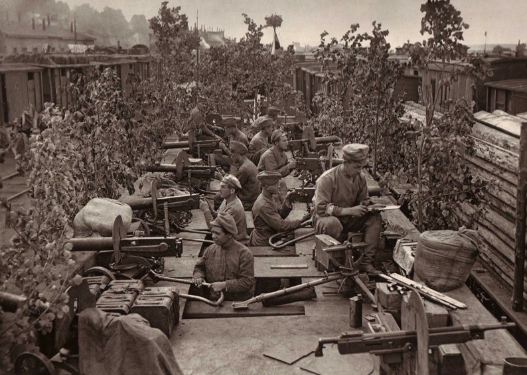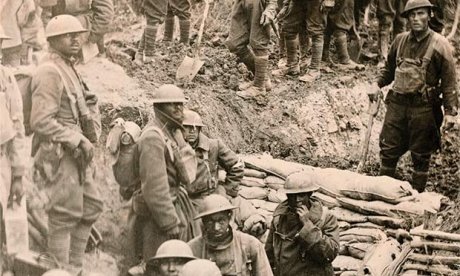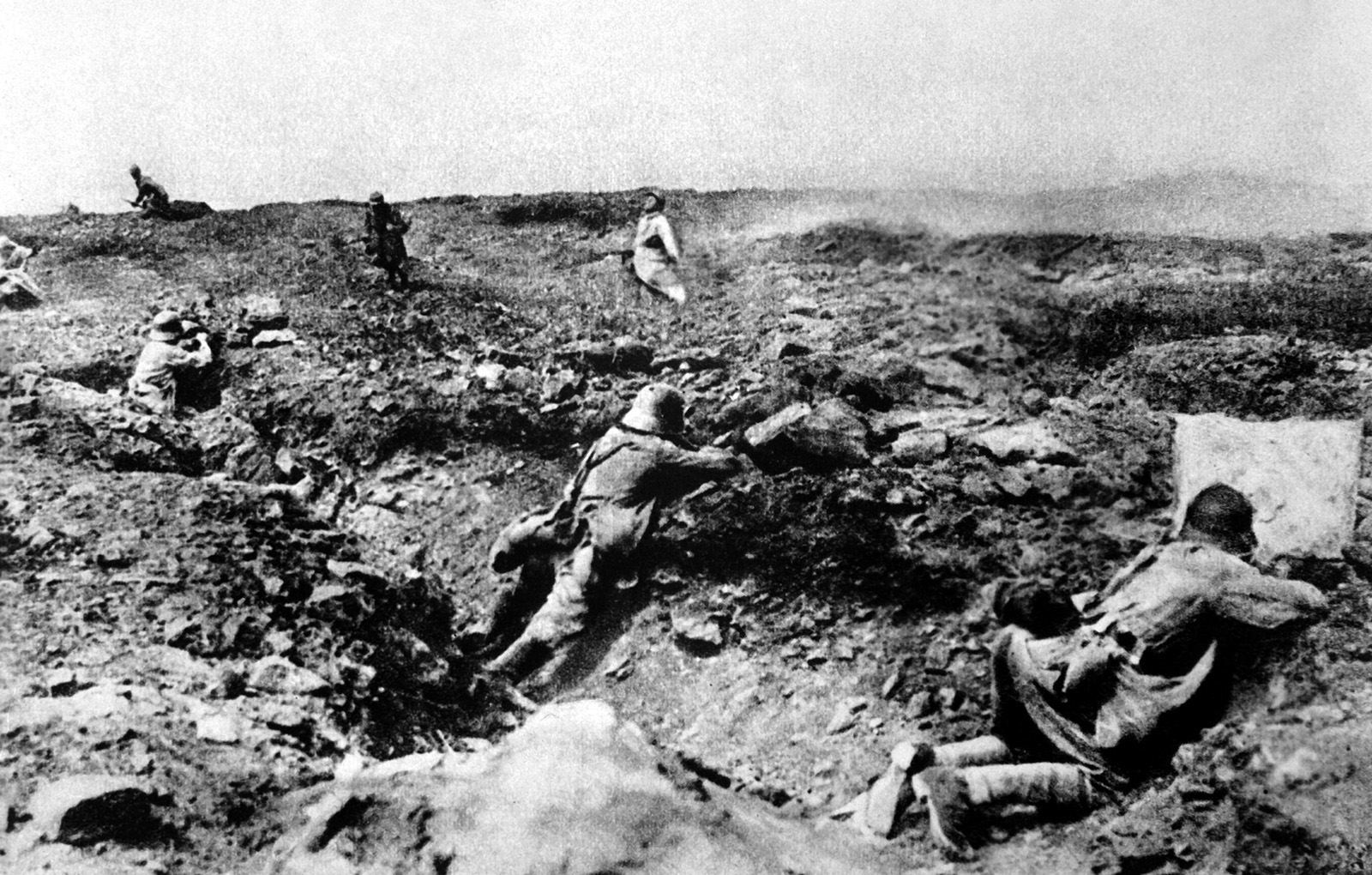A Weakened Russia is the Target.
In the West, German Soldiers Throw Down Their Rifles;
The Black Day of the German Army.
Special to the Great War Project
(12 August) Although the Bolsheviks had taken Russia out of the war early in 1918, it turns out that was not the end of the war on what had been the Eastern Front. Far from it.
Serious fighting erupted stretching from Central Europe east through what would become Czechoslovakia, Ukraine, the Caucasus, Siberia, reaching all the way to Vladivostok on Russia’s far eastern shore.

Soldiers of the Czech Legion
In late July, Czech troops who had been active in western Russia, taking no one’s orders but their own, reached the Volga River in central Russia.
“Czech troops,” reported historian Martin Gilbert, “were now holding a 3,000-mile line from the river Volga to the Pacific.”

The Czech Legion in Siberia.
By late July 25th, reports Gilbert, the Czechs have seized a string of central Russian towns, including Simbirsk where Lenin was born, and Ekaterinburg, where the Romanov Tsar and his family were executed just a few days earlier.
French and British troops seize Murmansk in Russia’s north. “The Germans,” reports Gilbert, “were masters of the Russian shores of the Black Sea and the Caspian. The Bolsheviks were struggling to retain power in the center.”
Then a thousand French troops landed at Vladivostok.
Meanwhile at the center in Moscow serious fighting breaks out as well. Lenin survives an assassination attempt. He survives, but two Bolshevik leaders are killed. Stalin takes the lead in a series of ferocious reprisals.
At this stage it has become clear the Czech troops stranded in Russia were now on their own and clearly besting their Bolshevik adversaries.
The Allies can’t help but notice the predicament of the Czech Legion, and for a time considered an attempt to fold the Czechs into their forces.
But the French, still allied with the Russians, and still committed to that alliance, squelched that proposal.
Then in the Russian far east, Japan enters the war on the allied side.
The politics, diplomacy, and military actions of the Great War had become very complex.
And what of the Germans and their war making capacity in early August a century ago?
“More important,” writes historian Adam Hochschild, “than the territory gained in their new offensive was that suddenly the Germans, legendary fighters in this war, were surrendering, often throwing down their rifles and raising their hands when confronted by smaller numbers of Allied troops.”

Allied troops, summer 1918.
It was this and not lost ground that began to convince the German high command that Germany had lost the war. It was on August 8th… “the day the Allied offensive began that was the black day of the German Army.”
“The war continued,” writes Hochschild, “but rumors of pessimism at the top began to seep out. Several hundred thousand soldiers, well behind the lines, either deserted or else ignored orders.”
There is a rising fear that if army discipline and morale collapse, “something even worse than an Allied victory could occur: Revolution at home.”

German positions, Western Front, summer 1918.

The importance of the hasty surrender of disaffected German troops and fears of revolution in bringing an end to WWI reminds me of how resistance and non-cooperation by US troops in Vietnam (as well as U.S. social liberation movements threatening the status quo in the U.S.) helped wind-down the war in SouthEast Asia.
I’m not a historian, but I believe there are some indications that if the broad US movement against entering WWI had not been repressed and had stopped the US from going in to mop-up, collect debts and take control, an earlier more equitable negotiated settlement to WWI and quicker reconstruction of Europe might have been possible. Perhaps Nazism wouldn’t have arisen in Germany, and perhaps the 21st century would have been less war-torn and their would be a better balance of power between transnational civil society groups (like the labor movement) and the transnational interests of bankers and weapons manufacturers and extractive industries that tend to profit from war and use it as an excuse to repress social movements that threaten their power. (This thought experiment is not an apology for the crimes of Communist Totalitarian governments, but it also recognizes that the “Military Industrial Complex” that Eisenhower warned us about, is also a threat to world peace, democracy and a sustainable future.
Thanks for this.